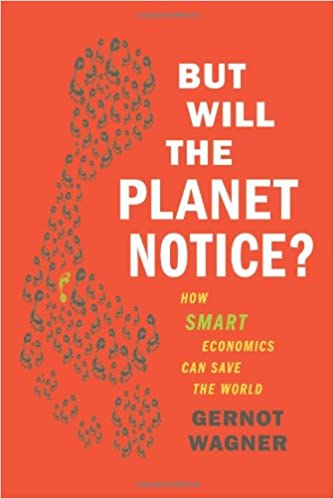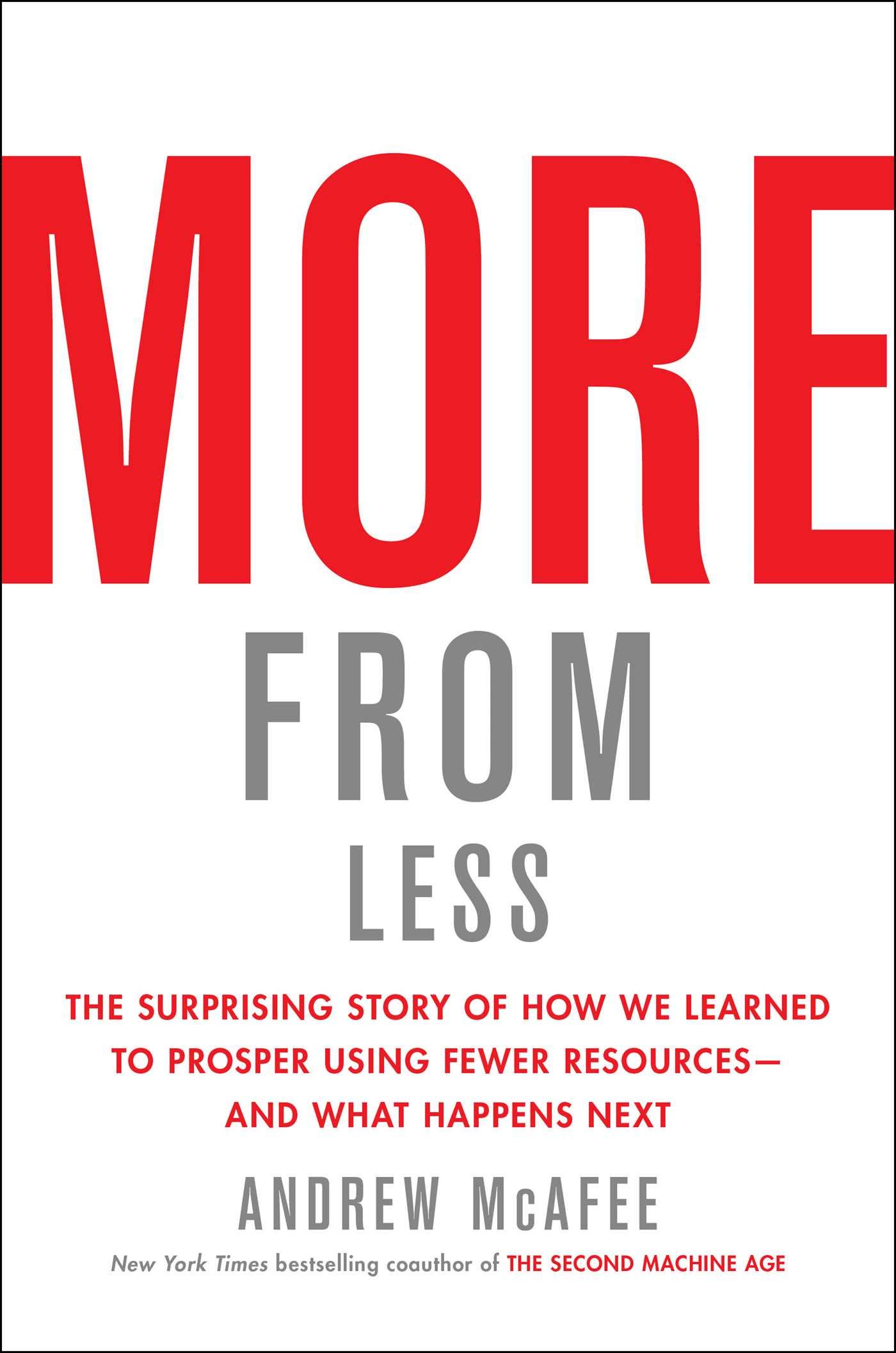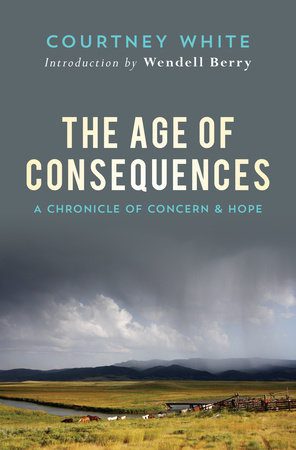
But Will the Planet Notice? How Smart Economics Can Save the World by Gernot Wagner
March 23, 2021
In Memory of Shepherdess Marge Finnegan
April 15, 2021More from Less by Andrew McAfee (2019) The author begins by saying he is in favor of carbon taxes, regulation of pollution and of trade in endangered species, nuclear power and GMOs. He acknowledges that those views will offend both traditional sides of natural resources policy. He’s right. I began to feel that my sequence selection was leading me ever farther out of my comfort zone.
His optimism is based on access to accumulated human knowledge through advanced computer technology. Humans always want more. Ingenuity is their ultimate resource. This requires no depletion of natural resources and enables us to use ever fewer resources to flourish. The application of energy in the industrial revolution and the efficiency of international trade and production (codified by Paul Samuelson’s theories of comparative advantage) are the means. The proof is in the rising living standard of healthy, long living humans and compact multiple use devices such as smart phones. This is despite the dire predictions of Malthus, Paul Ehrlich, etc.
Every society has a way to produce goods and services and to distribute them among its members. McAfee proceeds to extol a capitalistic system. He favors a moderate one between the extremes of market fundamentalism and socialism. Arguments for that approach include the guidance provided by market determined prices and the necessity of including externalities such as pollution. An informed public and a responsive government with adequate enforcement ability will produce good policies and procedures.
McAfee’s examples of good ideas produced and needing acceptance are an improved Human Rights Protection score (2014), GMOs, and glysophate. Those last two certainly push my buttons as does the feeling that his only concern for earth’s ecosystem is the protection of endangered species- which includes some mention of de-extinction. More objectively, McAfee’s concern is for the expansion and well being of humans. Clean air and water are important for them. More efficient production of food and goods will raise the general standard of living, reducing pollution and promoting a more inclusive cosmopolitan view among the general population.
McAfee feels that the needed cooperation (which he terms social capital) depends on emphasizing fairness rather than equality. Not having a feeling of being part of something bigger promotes resentment rather than any concern for one’s fellow man. Drug use, alcoholism, and suicide have increased mortality for middle-aged white Americans. There has been an increase in an intolerance for diversity, a desire for sameness. Ties to a broader shared society have been dissolved and there is no shared public awareness of facts.
McAfee’s solutions and his optimism for humankind intertwine widespread shared knowledge through online dispersion with raising living standards.
These books focus on fuels and minerals as opposed to such natural resources as timber, water, and food production or anything relating to our well-being. More from Less quotes Jesse Ausbel saying we must make nature worthless to keep it economically safe from voracious capitalism. In some respects it seems that we already regard Nature as worthless except as a source of raw materials that we feel that humans can exist independent of the earth. We do not feel that our being is an integral part of the earth and dependent upon it. Nor do we consider the idea that the earth is the goose that lays our golden eggs. Which leads into the last, and earliest, book.




